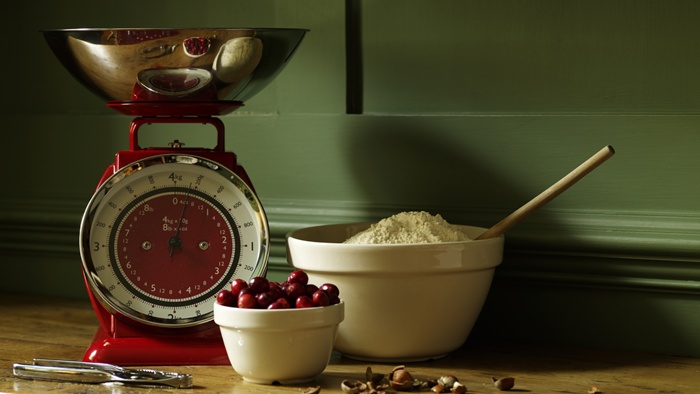
Eating healthy seems to be on the top of everyone’s to-do list, but it can be so hard with our hectic lives. Even if the food is homemade, we’re not always batting 1,000.
Those beloved family recipes that get passed down often are full of sugar and butter. Do we scrap eating what we love for the sake of eating better? The answer is no. Simple and easy substitutions can be made to almost any recipe, and will keep you on the right path of eating well and still enjoying your favorite dishes.
Cook with this, not that
Whether you’re creating an appetizer, entree or dessert, try these ingredient substitutions for great taste and healthier eating.
Sugar:
Sugar seems to be the biggest culprit in all of our favorite sweet desserts or hidden in our savory meals. The American Heart Association has linked sugar to heart damage. And studies have shown sugar is toxic for the body similar to the effects of alcohol, reducing the rate of cancer survival and obesity. With so many health risks associated with sugar, substituting this ingredient is a wise choice.
If a recipe calls for sugar, you have a few options to make it healthier. First, you can half the amount of sugar the recipe calls for. Additional cinnamon, nutmeg or vanilla also can bring out the sweet taste.
While honey and maple syrup can be options, there are natural sweeteners hitting the market which may be a viable option as well. Products like stevia, which is extracted from the leaves of the plant stevia rebaudiana, and erythritol, which is derived from fruit alcohols, contain less calories than regular sugar and are much sweeter than sugar so you can use less for your recipes.
Butter, margarine and oil:
These ingredients seem to be a staple for just about anything you are making, but don’t let the taste fool you. These ingredients are packed with saturated fat. Butter and oil have been linked with poor cardiovascular health and raising cholesterol.
A 2013 study published by the National Institute of Health looked at two groups of men with cardiovascular issues. One group ate margarine with their meals while the other group did not change its diet. By the end of the study, the margarine eaters had doubled their risk of dying from cardiovascular issues.
Swapping out these ingredients will protect your heart in the long run. What you are cooking or baking will determine which substitute you want to use. Applesauce replaces oil or butter for breads or muffins, for example, and depending on how dense or moist you want your dessert, use applesauce and include a small amount of butter.
Another alternative is avocados. This substitute will ensure you still get that creamy and moist texture in your baking. For added protein, Greek yogurt is a great swap, and you can reduce the calories of your dish.
Lastly, coconut oil is an excellent alternative to most cooking oils and good for your heart. The popular oil is high in chain fatty acids which help support weight loss and boost the immune system.
Salt:
Just a pinch of salt seems to give your dishes the punch they need when it comes to bringing out flavors. Your body does require some salt in the diet for your brain, transporting nutrients and regulating blood pressure, but there can always be too much of a good thing.
High amounts of salt can raise your blood pressure; so if you’re having too much salt too often, over time this can have long-lasting negative effects on your heart. Excessive salt can also lead to water retention and red eyes; fluid retention can cause chest pains, breathing troubles and skin wounds on your feet and ankles because of swelling and friction from footwear.
Salt can be substituted essentially with any spice. Add citrus juices such as lemon, limes and oranges. Other options are pepper, garlic, onion, rosemary and basil, all depending on what you’re preparing. If you’re determined to use a little salt, sea salt, the natural form of salt produced in water, is safer for your body.
Fear the kitchen no more when it comes to your health! With these easy substitutions, you don’t have to sacrifice flavor in the battle to eat better.
Whether you’re making a luscious chocolate cake or savory roast, keep these alternatives in mind. Recipes can be easily modified, and there are plenty of options out there to keep your culinary creations tasting great.
Sources:
Kirkpatrick, K., “10 Things you Don’t Know About Sugar (And What you Don’t Know Can Hurt You),” The Huffington Post, July 30, 2013; http://www.huffingtonpost.com/kristin-kirkpatrick-ms-rd-ld/dangers-of-sugar_b_3658061.html
Sugar, J., “Surprising Butter Subtitutes To Save Calories And Fat,” Popsugar, June 13, 2014; http://www.fitsugar.com/How-Replace-Butter-When-Baking-21875486
Mayo Clinic Staff, “Healthy Recipes: A Guide To Ingredient Substitutions,” Mayo Clinic, February 15, 2014; http://www.mayoclinic.org/healthy-living/nutrition-and-healthy-eating/in-depth/healthy-recipes/art-20047195
Morgan, L, A., “What Are The Dangers Of Excess Water Retention,” Livestrong, January 13, 2014; http://www.livestrong.com/article/154647-what-are-the-dangers-of-excess-water-retention/













